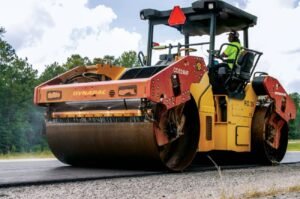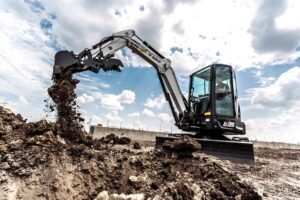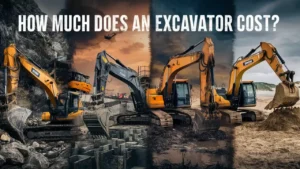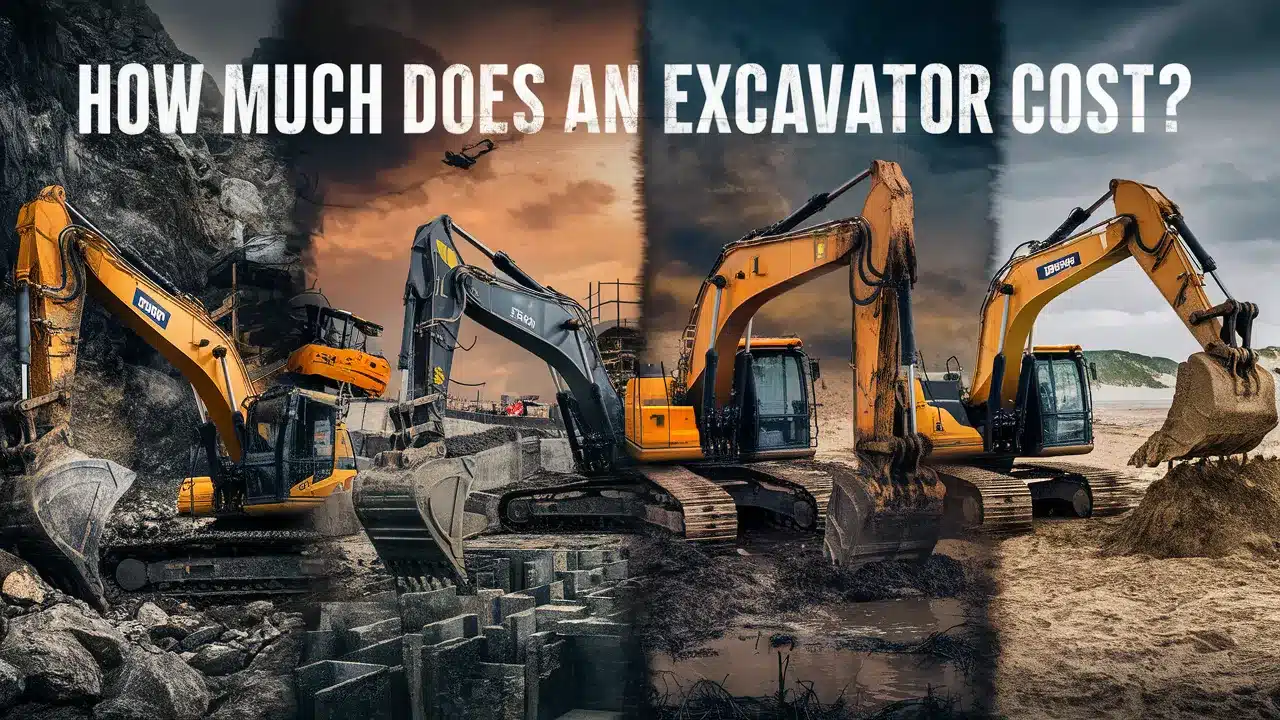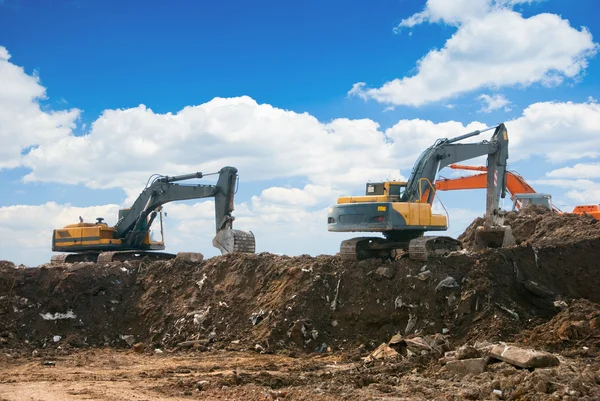Safety must always be top of mind when running an excavator. When you don’t think about safety, accidents can happen that can affect people’s lives and destroy property. Here are some things to remember to make sure you and everyone else are safe when you’re operating an excavator.
Ensuring the safe operation of excavators involves thorough preparation, adherence to safety regulations, and effective communication among team members. This guide covers the crucial steps needed to minimize risks and enhance safety on the job site.
Let’s delve into the specific preparations needed before operating an excavator.
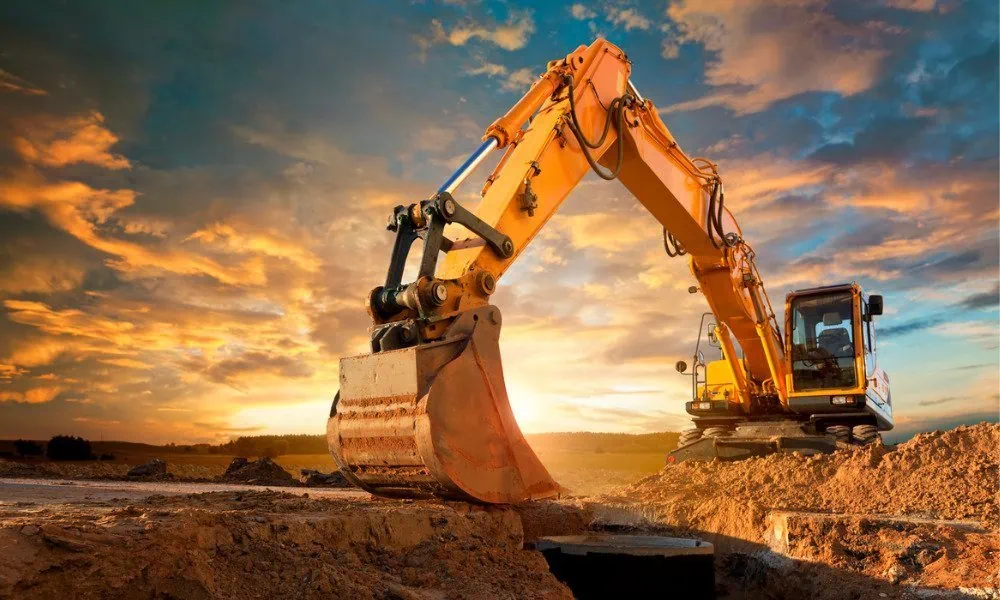
Table of Contents
ToggleWhat Preparations Are Needed Before Operation Of Excavators?
Before you start running an excavator, you need to run through a pre-op. That means you need to inspect a machine for damage. Make sure all the safety devices work. Make sure the machine is ready to run the job you have for it. Here’s what you need to check:Hydraulics. Check to make sure nothing’s leaking. If you don’t see any oil on the ground, you should be all right.
Tracks or wheels. Make sure they look good and are adjusted correctly.Attachments. These should work properly and look a-okay. You don’t want a piece falling off while you’re busy.Inside the cab. You need to see your controls and be able to reach them without getting tangled up in anything. Make sure you have a clear view of all the gauges so you know what’s happening with the machine and when. These are all things you need to check on the machine before you fire it up and go to work.
Check the fluid levels. Make sure there’s enough oil, coolant, and diesel fuel. Look at the tracks to make sure everything looks good there and that the right tension is on them. If they’re too tight, the tracks and gears will wear out. If they’re too loose, the machine won’t move right. Check your buckets. Make sure they’re secure. Check over the lights on the machine. Make sure they all work like they should.
When you do these inspections, keep a record. Remember where you checked, what you found, and what you did. That way, going forward, you can uncover any small issues before they become big ones. Summing up: A complete pre-operational inspection of an excavator is a great place to find jobsite hazards and create a safer environment for the crew. Keep a log of your findings. This is good data to keep so you can tell when something’s not right, get it fixed, and keep your machines working like they should.

What Are the Safety Regulations for Operating an Excavator?
When operating your excavator, you need to keep everything safe for you and everyone else who’s nearby. Remember to follow your company’s safety regulations and rules about operating these machines. Keep these things in mind:
Wear your PPE. That stands for personal protective equipment.Use the machine the way it was designed to be used. Keep the crew and anybody else around your operation out of harm’s way. Always maintain a safe distance from where the machine’s working. Operators need to be aware of what’s going on around them. Keep an eye out for hazards and anything that might obstruct your view or cause an accident.
If you can’t see what’s happening, make sure you have a spotter helping guide you when you’re working in tight locations. The operator needs to read and understand the manual for the machine. Know what you need to do in case of an emergency.
When you’re running your machine, you need to wear your PPE (personal protection equipment). Wear your hard hat, safety glasses, gloves, and steel-toed boots. If you use them, high-vis clothes are a good idea to help the crew and everybody else on the site know you’re around. Following local laws is a must when you’re running your equipment. Look and see if the country or place where you’re running your machine requires certification. When you run your machine, always remember to stick to the local laws. This will help you operate your equipment safely and let you and the team you work with go home every night knowing you’ll be there to do it all again the next day.

How to Identify and Assess Potential Hazards on the Job Site?
Find Out what Might Hurt You When you’re working with your excavator, you have to deal with potential hazards like: Underground utilities Overhead power lines Workers and other machines around your site Always keep an eye out for things like this so you don’t end up hurting yourself or someone else when you run your equipment. Always be aware and keep your eyes open when you’re running your machine. This will make it easier to look for potential dangers and help you run a safer, more productive job site.
One of the best ways to spot potential hazards on the job site is to do a thorough assessment. This way, you know what’s out there and you won’t get any surprises while you’re working. Here’s how to keep your eyes open and stay safe when working with your excavation job: First, do a pre-construction assessment of your job site. Pull out your maps and look them over.
Do some up-close sightseeing to see what’s there and what might cause you trouble. Lastly, barrier off your entire excavation area. You’ll make sure no one gets into this area except for the people working on this job. Doing this will give you another layer of protection from potential harm. You can turn around and get all this stuff together with just your equipment by using the right tech. Use ground-penetrating radar for underground utilities. Get a drone with a camera to give you a bird’s eye view for potential problems from a different perspective. This gives you an all-encompassing view of your work site so you can see any problems that might come your way.
Another thing you can do is ask your team members to take a look at your job site. They can help you spot potential dangers in and around your work area. They may notice something you missed, which can protect everyone working on the site. Remember that working safely is a team effort, with everyone lending a hand to protect themselves and each other.
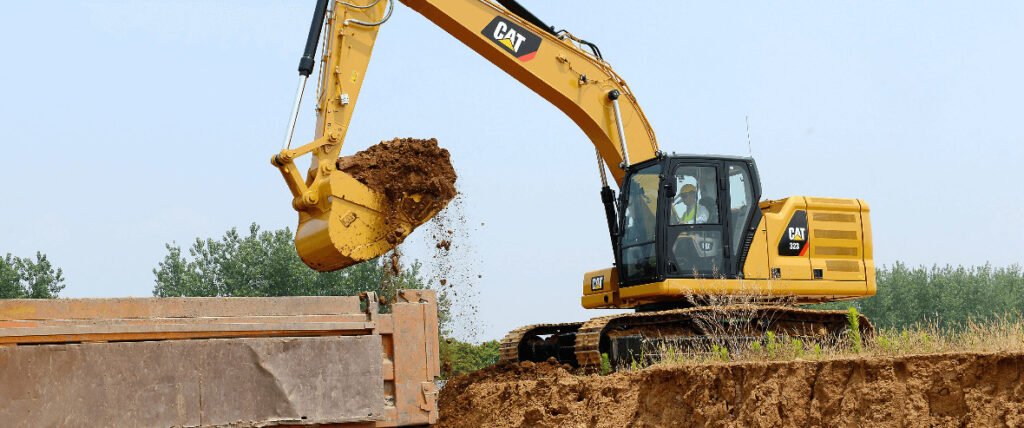
What Qualifications Should Excavator Operators Have?
Get the training you need to run an excavator the right way. Make sure you’re certified to run your machine. Get the training you need so you can work the equipment like it’s made to work. Learn how all the safety features work and what you need to do in case of an emergency. After all, you can’t work safely unless you know what you’re doing when you fire up your equipment.
Getting certified is a no-brainer because it: Demonstrates you know how to work that piece of equipment safely. Adds to your skills. Shows others on the job that safety is your priority. After you’re certified, make sure you keep up with the latest safety techniques and tech. Follow up with additional education and refresher courses to keep yourself current on everything you need to run your machine safely. Also, your employer could require that you need to be licensed to run a specific piece of equipment. Make sure everybody who needs a license or certification for the machines they run has the correct paperwork and training.
Trainees can expect to hit the books for a while, and then spend time working on an actual machine. Students will learn all about how to safely run the equipment, including the safety procedures and what to do in an emergency. If your job site has any unique hazards, you might want to consider bringing in some specialty training to show you how to navigate them while working.
A mentorship is a great way for new operators to learn the equipment. They can pick up tips and get practical advice on the best way to do their job. If you put new operators with seasoned operators, you let them learn firsthand from someone who’s already walked in their shoes. That makes for a safer work environment for everybody.
How to Maintain Good Communication on the Construction Site?
Communication is key for keeping everyone safe on the job site. Here’s how to do it: Make sure everybody knows the signals and what everyone’s supposed to do. Get your crew together before you start your motion to let everyone know what’s being done and how you’ll do it. Use two-way radios or hand signals to let everybody know what’s going on, especially if you work at a noisy job site. Finally, it might also be a good idea to appoint a safety officer. This person can supervise the work and make sure everybody stays safe. Make sure everyone can keep in touch easily to prevent potential accidents and problems.
Tell your team to report any safety issues or near-misses. You want everyone to feel like they can come to work and have a discussion about safety if they need to. This kind of setup can really put safety at the top of everyone’s minds and help prevent accidents. Having someone in charge of communication can help get the message across. Create a system for making sure that every safety message is delivered quickly and accurately.
How to Handle Excavator Failures or Emergencies?
Always be prepared for your equipment to fail or something to go wrong. Know the machines’ emergency shut-off procedures and what you need to do in case something breaks down. If you have a malfunction, you should shut everything down and report the problem right away. Make sure your company has a list of emergency contacts everyone can use when needed.
Perform regular emergency trainings so everyone understands what they need to do in case of an emergency. Keep a first aid kit on your job site. Make sure everybody knows where it is and how to use the items in it. Finally, everyone needs to have the basics of first aid training. You never know when you’ll need the skills to give someone a helping hand.
Have a plan in place for every emergency. Contingency planning is essential for problems such as equipment failure, medical issues, weather problems, and so on. Do drills often to make sure everybody knows what to do in an emergency. Use a mobile phone app, an emergency notification system, or social media to communicate in a hurry about any emergency that comes up. You need to have all your emergency equipment, like fire extinguishers and spill kits, in a place where you can access them quickly. When you do your regular inspections of your job site, make sure everything you need for an emergency is right where you know to find it.

Why Is Daily Maintenance Important for Safety?
Equipment maintenance is an important part of keeping everybody safe on the job site. You should regularly inspect your machine to check for any wear and replace any damaged parts. Make sure all your fluid levels (like oil, hydraulic fluid, and coolants) are where they need to be. Use a maintenance log to record your service and repairs so you can keep track of when your machine needs service. Make sure you’re doing everything recommended by the manufacturer to keep your machine in good condition and running safely. Regular inspections of your machine will help you prevent accidents and downtime caused by broken-down equipment.
The biggest payoff for you is that regular preventative maintenance can keep your machine from breaking down. It can also extend the life of your equipment and keep maintenance costs down. Your machine will run smoother and perform better, which helps keep everyone safe on the job site. It’s also a smart idea to keep a strict maintenance schedule for your machine so everything continues to run safely.
Train your operators to spend a few minutes each day helping make sure your machine is ready to go. You need to make time to keep everything running right and to prevent unexpected problems or downtime during your workday. If your crew is doing everything they need to do to make sure your machine runs safely, your job site will run smoother and everybody in your crew will be safer.
How to Ensure Safety in Different Environments?
If you’re going to work in different environments over different terrains and in different types of weather, you need to adjust your operation for both of these situations. This could mean doing different things if you need to work on a slope or in wet conditions. Think about where you’ll be running your machine—whether it’s in muddy or slippery conditions, on a hill or just elevated, or even in the rain.
If you run your machine often and don’t know what the weather or the job site terrain will be like, adapt your machine accordingly with the tires or tracks you use. When you work safely in these situations, be aware of the machine on the property, and park safely when you’re not using it. Adapt your machine to the conditions of your work site so that everyone stays safe on the job.
You need to assess how the rain and snow will affect the terrain you’re going to work and park your machine on. There are lots of conditions that can take hold fairly quickly and compromise the safety of your job site. Whether it’s the weather conditions or the drainage at your site, you need to make sure every part of your excavation operation is safe. Bad visibility is sometimes an issue when the fog or rain sets in, which means you need to adjust your work practices accordingly.
As you work in a certain environment, you’ll see things that may cause problems or are dangerous in other situations. You’ll want to learn how to deal with these hazards when you encounter them to keep safe. Study your environment and the hazards connected with operating your equipment there. When you learn about these hazards, you can decide how best to handle them working from one job to the next.
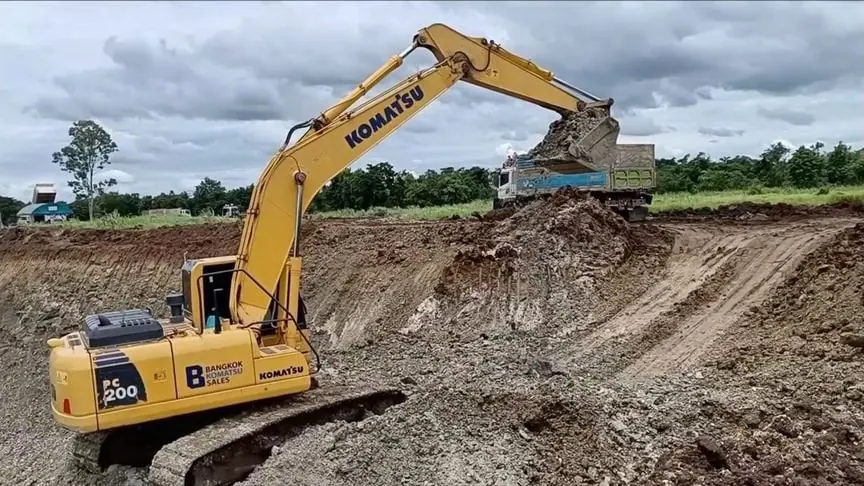
How to Foster a Safety Culture Within Your Team?
When you start a company or work with a large company, you have to get everybody involved and talking about safety. Spread the word and get everyone talking about and recognizing safety. If you give people a chance to share safety tips and know about safety hazards, you can make safety a part of your regular company culture.
If you run your own business, create a culture of safety where everybody knows they can come talk about something that’s bothering them. Encourage your crew to recognize, discuss, and share safety tips with one another. Give your crew the chance to bring up any safety issues they want to address. Work with your team and create a safety culture, and work together to recognize these hazards and fix them as you work through your day.
Sometimes, rewarding people for safe work habits can be a good way to motivate your crew to stay safe. This doesn’t have to be a big or expensive reward – it can be something as simple as getting publicly recognized for their hard work. If you see someone doing something good, talk to them and recognize them as a group leader that everyone can look up to.
This not only makes them feel good but also encourages others to think about safety more often when they’re on the job. Starting a peer recognition program is a great way to get your crew involved with recognizing their coworkers who use the best safety practices. Your team will feel good about themselves as they recognize their efforts to work safely. This way, everyone can hold each other accountable so that everyone stays safe.
What Are the Latest Technologies in Excavator Safety?
It’s easy to keep your crew safe when you use the technological safety features that come with new equipment. Newer machines include automatic shut-off systems, proximity sensors, and cameras that give you a complete 360-degree view of the work area. All these features make it easy for the person running your equipment to see everything around the machine and avoid any potential accidents.
In the future, additional safety measures can be added to your equipment to make it easier to operate while running the latest technological advancements. Predictive maintenance features on your machine can help you see potential issues and fix them before they turn into full-blown machinery failures. Looking at different case studies of companies that are currently operating machines with the newest safety technology can show you how these advancements can help improve the safety of your crews. You can look at companies near you that are using the same safety technologies as you, to see if there are any challenges that come with these advancements that you might need to prepare your crew for.

Conclusion
To keep your crew and your job site safe, plan regular safety training and use the latest technology and education to help workers be aware and safe. Safety can be built into your company culture, making it a good daily practice for everyone. A safe working environment can also keep your company and your team running at peak performance.If you need a second hand excavator please contact me or send me an inquiry

